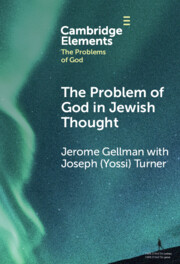Refine search
Actions for selected content:
1 results

The Problem of God in Jewish Thought
-
- Published online:
- 09 December 2024
- Print publication:
- 09 January 2025
-
- Element
- Export citation
